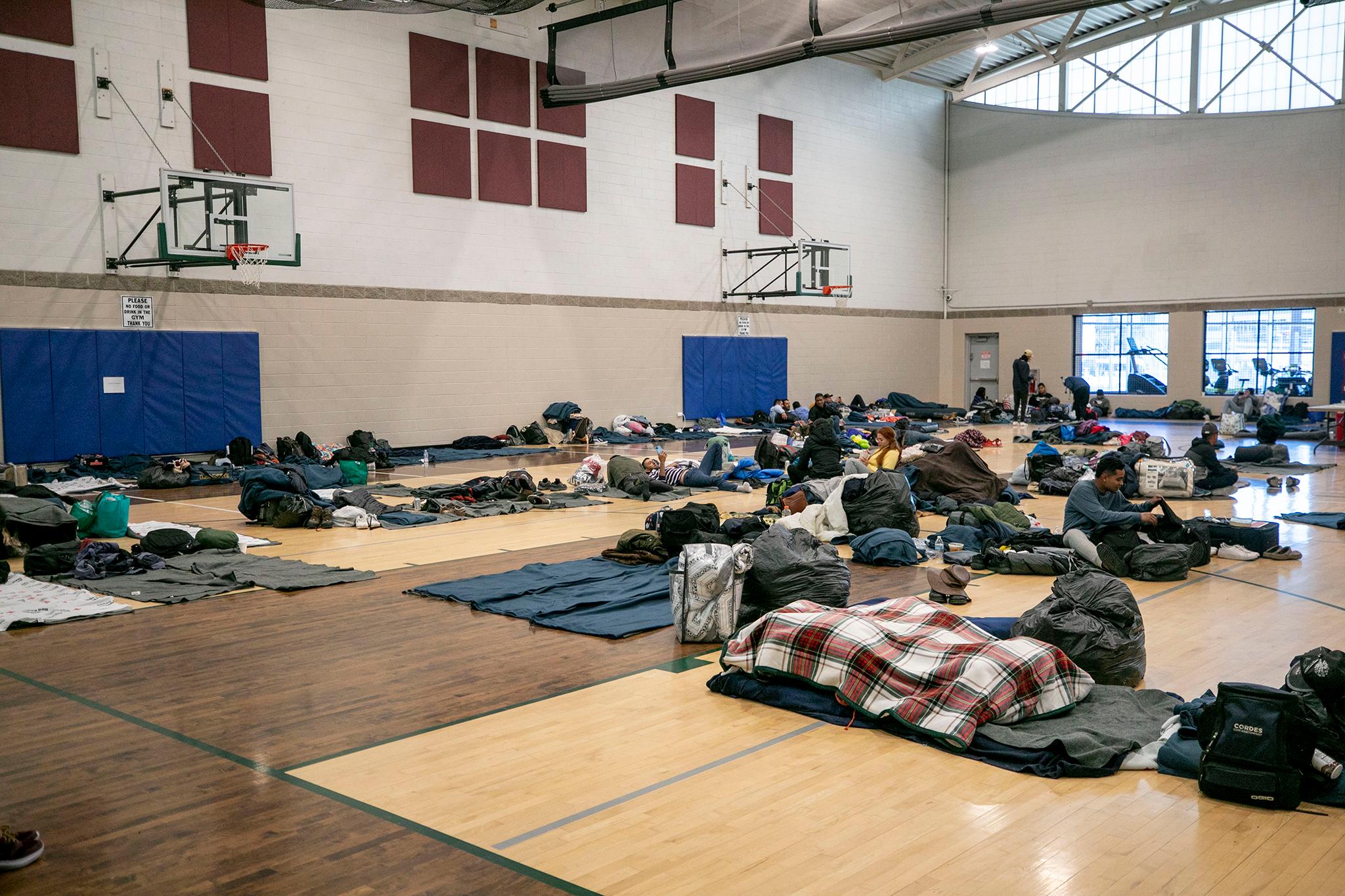The Twentieth Street Recreation Center is back open as of Monday. It marks a shift in Denver's migrant response, as the final of three rec centers supporting migrants to reopen to the public. Rude Rec Center reopened in January, and Central Park Recreation Center reopened in February.
The city originally converted the centers into emergency shelters and welcome centers in December of 2022, when Denver saw upwards of 200 people arriving on some days in December and early January. Many of the migrants, largely from Venezuela, came to Denver after crossing the border near El Paso, Texas.
During a Council committee meeting Monday, Councilmembers Chris Hinds and Amanda Sandoval noted since Denver had to respond quickly to the need for shelter, the city used rec centers because they knew they were up to building codes and accessible for people with disabilities.
Arrival numbers began to slow down by early February, and Denver began the process of decommissioning its rec centers and shifting support services to non-city locations. According to the city's data dashboard, there are currently zero migrants sheltered in city facilities and around 1,000 sheltered in non-city facilities. On Sunday, 38 people arrived in Denver.
While the rec centers have reopened, the city is continuing to support migrants through partnerships with hotels and other temporary shelters.
In a presentation to City Council Monday, city officials said Denver is currently spending around $800 to $1,000 per week per migrant, with an estimated $17 to $20 million in costs from December 2022 through June 2023. This includes shelter, food, transportation, staffing and other support service costs.
In addition to city money, Denver has received money from the state and is waiting on funding approval from the Federal Emergency Management Agency. But how much the city will continue to pay, plus the availability of other funding sources, remains an open question as officials apply for funding and choose a contractor to administer future services.
Plus, there's the possibility of arrivals rising again in the future. "It's really hard to project what's going to happen," Denver Chief Financial Officer Margaret Danuser told Council on Monday.
Currently, Denver is sheltering arriving migrants at non-city facilities for up to 30 days.
In budgeting for future support for migrants, city officials said they do not plan to take services away from people already experiencing homelessness in Denver. But with only 30 days of guaranteed shelter, Sandoval said she worries migrants will end up in Denver's homeless shelters.
"That hasn't materialized nearly to the degree that we had feared," said Jay Morien, Chief of Staff for Denver Department of Human Services, citing the work of Denver's nonprofit partners for providing additional services.
But people seeking asylum have to wait six months to even apply for work permits-a process that can take several months longer. With this wait, Sandoval said she's skeptical that 30 days is enough time for families to get on their feet, and that she worries about burnout among the city's nonprofit partners.
"They can't get jobs, they no longer can get served by Denver, so what are we telling them?" she asked.
Denver is still accepting donations for migrants on Thursdays from 10 am to 1 pm and Fridays from 12 pm to 3pm at the Interfaith Alliance of Colorado, at 1373 N. Grant St.














